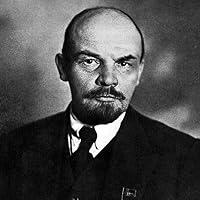
Vladimir Lenin
Om författaren
Vladimir Lenin was a prominent revolutionary leader and the founder of the Russian Soviet Federative Socialist Republic, which later became the Soviet Union. He played a crucial role in the Bolshevik Revolution of 1917, advocating for a Marxist ideology tailored to the Russian context. His works, such as "What Is to Be Done?" and "Materialism and Empirio-Criticism," laid the theoretical foundation for his political actions and the development of Soviet Marxism. Lenin's leadership during the Russian Civil War solidified his power and established him as a key figure in global communism.
Lenin's policies and governance had a lasting impact on the course of Russia and the world. He sought to dismantle the old regime and implement radical changes in society, including land redistribution and the nationalization of industry. His legacy is complex, as he is both revered and criticized for his methods and the outcomes of his policies. Despite his death in 1924, Lenin's ideas continued to influence communist movements worldwide and shaped the 20th century's political landscape.